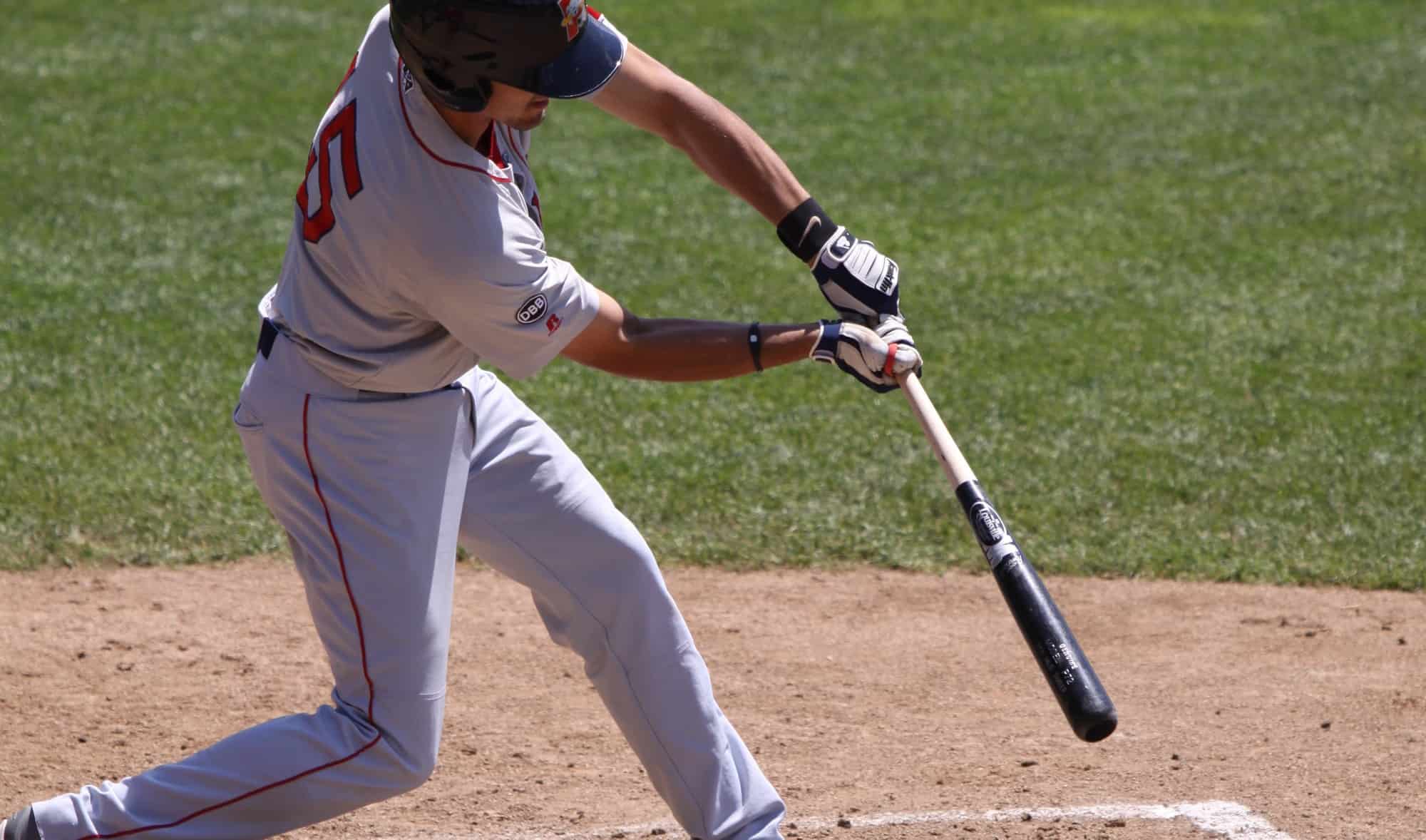
In baseball, a checked swing is a batter’s attempt to hit the ball that is halted midway through the swing. Determining whether the swing was checked or not can be subjective, but it boils down to whether the batter went far enough for it to be considered an actual attempt to hit the pitch. Let’s explore how umpires make this critical call and what it means for the game.
POINTS
- A checked swing is when a batter tries to hold the bat back after starting the swing.
- If the bat breaks the plane of the bottom of home plate, it’s counted as a strike.
- There are several reasons why checked swings happen. Batters may be trying to avoid hitting into a double play, they may have been fooled by the pitch, or they may be ahead/behind in the count.
What does it mean to check your swing?
A checked swing is one where you stop at a pitch. You may have started to swing, but changed your mind based on the location or speed of the pitch. It is often a judgment call by the home plate umpire or one of the field umpires.
What’s considered a checked swing?
Again this is based on the judgment of the umpire, but the common belief is that if the bat breaks the plane of the bottom of the plate (the part closest to the pitcher) the hitter has offered at the pitch and it is a strike. Anything up to that point is still considered a checked swing.
Why do players check swing?
You will notice that players check their swings for several reasons. The variables can range from personal preference to strategic reason.
If there is a runner on base and that runner takes off on a straight steal, the batter may choose to check their swing in order to avoid hitting a fly ball and doubling up the runner. The hitter may also choose to check a swing to run interference with the catcher and slow their reaction to the base runner.
Another reason why a batter may choose to check a swing is that they were simply fooled by the pitch. You may notice that a batter is “sitting” on a particular pitch and when the pitcher releases the ball, the delivery may throw them off and surprise them. If they were expecting a fastball and a change-up comes, then they could choose to not offer at the pitch.
You might even find that a checked swing is a strategic choice. If the location of the pitch would cause the hitter to hit the ball into a defensive shift, a double play, or any other play that results in an out – then you may see them check their swing.
Finally, a simple reason why a batter may check their swing is that they believe the pitch is going to be called a ball – or they simply don’t like the pitch. This may also depend upon the count as most hitters have a strategy for how they approach pitches. If a hitter is ahead in the count they may be more aggressive. If a hitter is behind in the count, you may find them being more defensive and trying to protect the zone.
Is there a rule for check swings?
There is a rule for checked swings, but it is primarily a judgment call. Just like the strike zone, it is up to the discretion of the home plate umpire and, in an appeal, the field umpires. If a catcher believes the hitter did swing, they may appeal a no-call to the field umpire to see if they think the batter swung.
Appeals of left-handed hitters go to the third base umpire. Appeals of right-handed hitters go to the first base umpire. The field officials will not make a ruling unless there is an appeal of a checked swing. If the home plate umpire deems it a swing then it is ruled a strike.
If the pitch has ruled a strike then it does not matter if the batter swings or not.
Can a batter appeal?
Batters do not appeal checked swings. If the home plate umpire calls it a swing, then it is ruled a strike. An appeal can only be made by the defense if the home plate official rules it a checked swing/ball. The catcher would then appeal to the first base or third base umpire for a ruling. The field umpire will then either uphold the checked swing call or overrule it and call it a strike.
Is a check swing reviewable?
Judgment calls in baseball are not considered reviewable. Therefore, just like balls and strikes, infield fly rules, obstruction, and much more – check swings are not reviewable by instant replay. Instead, the only option available to the defense is to appeal a checked swing to one of the field umpires.
However, it is important to note that the offense has no options in terms of appealing a call. If the home plate umpires ruled that there was a swing, the offense cannot appeal to the field umpire.
Which umpire calls check swing?
There are a few variables as to who calls a checked swing. The home plate umpire is always the first umpire to make a call. If they call it a strike, it is considered a strike. If the home plate umpire rules it a ball (or a checked swing) then the catcher or the manager of the defense can ask for an appeal. So who makes the call?
The appeal goes to a field umpire. Which field umpire gets the call depends on the batter. If it is a right-handed batter, then the appeal goes to the first base umpire. If it is a left-handed hitter, then the appeal goes to the third base umpire. The simple reason for the use of these umpires is because they offer the best perspective of the respective batters.
How do you stop a swing?
Stopping a swing can be pretty difficult. As a batter, the biggest deciding factor is going to be how badly you were fooled by the pitch. If you are not committed to striking the ball it will be easier to stop your swing. However, if you believe that a pitch is a hittable one, you may find yourself to be more committed to swinging.
As a pitcher, one of the best ways to cause a hitter to swing at a pitch (or go past a checked swing) is to keep them off balance. This would involve changing the speed of pitches, changing your locations, and also changing the type of pitch. Hitting can be a game of guessing. If you are a pitcher, you want to keep that hitter guessing.
 Written by Mark Bailey
Written by Mark Bailey